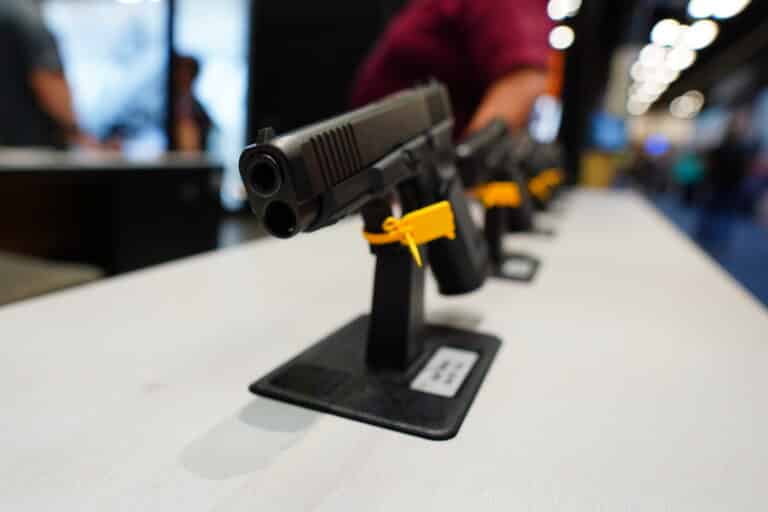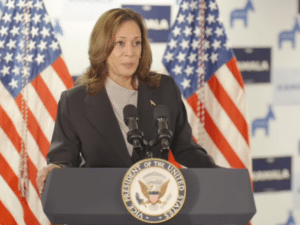We’re now less than two weeks from the much-ballyhooed Tennessee special legislative session, where gun policy and public safety legislation are expected to take center stage. The session’s outcome may be telling about the state of modern gun politics.
All eyes will first and foremost be looking toward what becomes of Governor Bill Lee’s (R.) proposal for a red flag-style law in the Volunteer State. While not the exclusive focus of the session, his temporary “mental health order of protection” policy has captured most of the public attention in the lead-up to the session since Lee first unveiled it in April.
Careful to distance himself from the “red flag” label considered politically toxic in ruby-red states, Lee’s proposal would essentially accomplish the same goals but with several due process protections not found in red flag statutes on the books elsewhere. Thus, it is clearly aimed at making a policy of removing someone’s firearms without a criminal conviction more politically palatable to his fellow Republican elected officials and their constituents. So far, however, it does not appear to have worked to head off intraparty backlash.
Last Saturday, the Tennessee Republican State Executive Committee adopted a resolution asking Lee to cancel the special session altogether.
“I think Tennesseans not only are proud of but understand the Second Amendment. They are proud and agree with the Constitution of the United States,” Committee member Tina Benkiser said of the resolution, according to the Chattanooga Times Free Press. “My concern, and a lot of others’ concerns, is that some of the proposals we’ve heard really violate due process of law.”
Days later, when Governor Lee formally issued a proclamation for his August 21 “public safety special session” over the objections of the executive committee, he drew the ire of gun-rights advocates in the state.
“Governor Lee appears intent on ramming through an administrative gun control package in just a few days that will effectively preclude the public (or most legislators) from having the opportunity to consider, comment on or even take an organized position on this gun control package,” the Tennessee Firearms Association said in a post responding to his proclamation.
The group has been keeping a running tally of lawmakers who have publicly taken a position on Lee’s proposal. To date, the group counts seven elected officials, including three Republicans, who have publicly announced their support for the proposal. Another ten lawmakers, mainly Republicans, have said they will decide one way or another during the session. But 28 Republican lawmakers, including the leadership of both chambers, oppose Lee’s policy.
Gun-control advocates and elected Democrats in the state have been working to counteract conservative opposition to the proposal by ginning up public pressure. A group of Democratic lawmakers announced a statewide bus tour beginning this week designed to promote Lee’s extreme risk proposal and other gun-control policies until the special session kicks off.
Meanwhile, the group Everytown for Gun Safety recently launched a $100,000 digital ad campaign focused solely on encouraging the public to contact legislators and push for their support of Lee’s proposal. A public comment forum, opened for the state’s residents to provide feedback to lawmakers ahead of the special session, has already received more than 20,000 responses, according to the Governor. A majority have called for stricter gun laws, according to a WUOT News analysis.
Despite these attempts by gun-control advocates to rally around Lee’s proposal, it appears the intra-coalitional pressure from the gun-rights community and members of his party has affected the Governor. In the proclamation order setting the parameters of the special session, Lee included “temporary mental health orders of protection” as a policy to be considered by lawmakers. But the policy was notably omitted from the Governor’s administrative bill package. That means that while the proposal will still be on the table for passage, indicating that the Governor still supports the idea, Lee himself will no longer be fighting to get it across the finish line.
Instead, Lee’s administrative package will focus on codifying his executive order issued shortly after the Covington School shooting designed to boost gun background checks by improving record sharing with the Tennessee Bureau of Investigation. It will also focus on a series of mental health reforms and promoting safe firearms storage by reducing taxes on gun safes, providing free trigger locks, and launching a public awareness campaign around safe storage practices.
That’s quite a departure for Lee from the confident stance he took in support of the policy in April when he publicly called upon state lawmakers to eschew “politics” and “division” to get the order of protection bill passed.
“We’ve done this before – the Governor’s office working together with the legislature to rise above politics and lead through division… to search our hearts and do that which I believe Tennesseans have elected us to do,” he said at the time. “Tennesseans are depending on us.”
The subsequent back-peddling, limited as it may be, suggests that Lee’s efforts to bolster an extreme risk law with numerous due process protections were insufficient to change the red-flag law debate politically, at least in a Republican state.
At the same time, his willingness to allow the policy to remain on the table for other legislators to push suggests that, at least at some level, Lee is under pressure to appear proactive on the issue. As the Governor, he had plenary authority to set the parameters for what could be considered during the special session, including the option to entirely exclude consideration of a red-flag-style law if he so chose.
His choice of keeping it on the table—effectively forcing lawmakers to act on it one way or another—while stepping back from shepherding it through personally suggests a political calculation borne of strong cross-pressures from both gun-rights and gun-control supporters.
While the gun rights side will likely win the day legislatively due to supermajority Republican control of the state assembly, whether or not those same elected Republicans are rewarded or punished at the ballot box for their stances next election will ultimately tell the tale.






